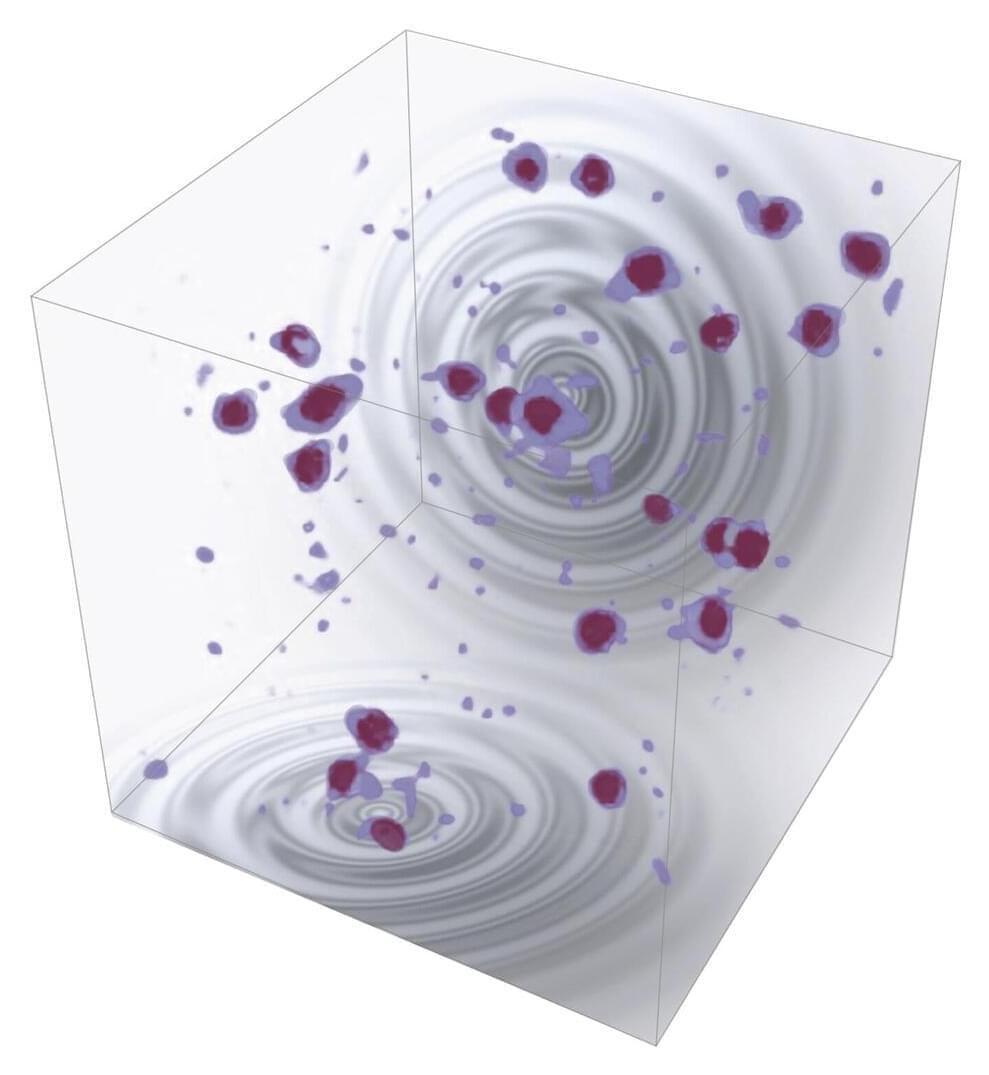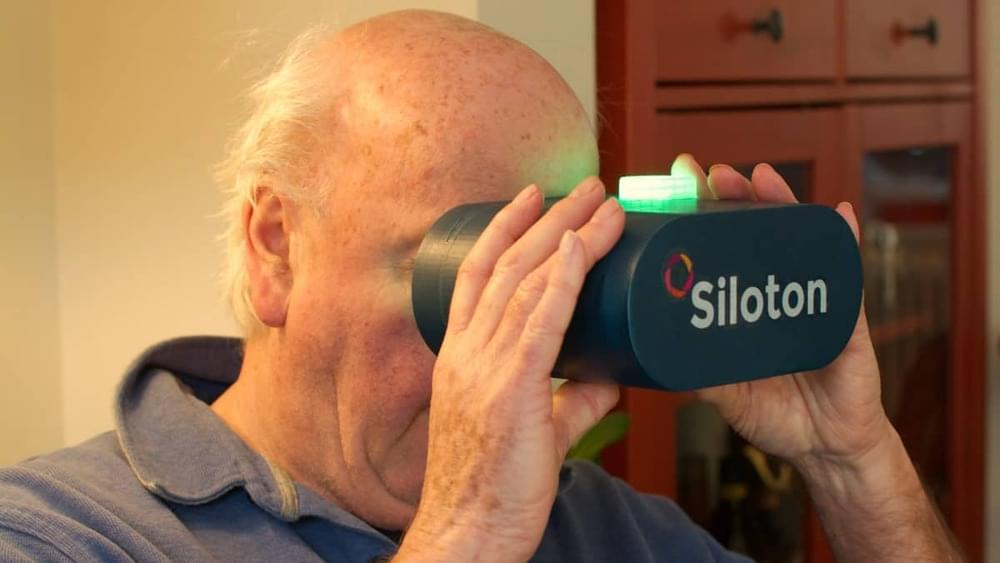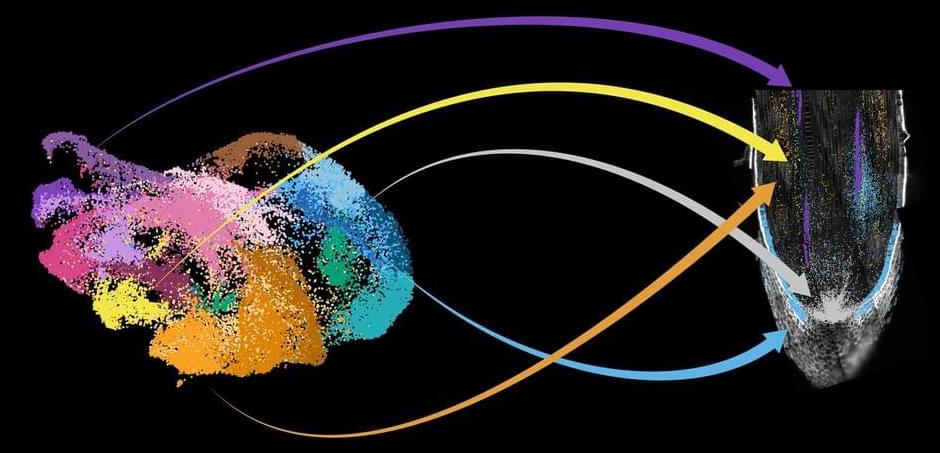Google announced a new Gmail feature that will write entire emails for you. Say goodbye to busywork and pointless messages.



Researchers have discovered a new generic production mechanism of gravitational waves generated by a phenomenon known as oscillons, which can originate in many cosmological theories from the fragmentation into solitonic “lumps” of the inflaton field that drove the early universe’s rapid expansion, reports a new study published in Physical Review Letters on May 2.
The results have set the stage for revealing exciting novel insights about the universe’s earliest moments.
The inflationary period, which occurred just after the Big Bang, is believed to have caused the universe to expand exponentially. In many cosmological theories, the rapid expansion period is followed by the formation of oscillons.


Year 2022 These animals have fire resistance which could allow humans to essentially be more fire resistant. I still believe the best gene hack would be a tardigrade essentially because they gave so many survival genes.
Echidnas are among the last mammals on Earth to lay eggs, but that’s not what makes them so miraculous.


As well as helping us learn about the earliest galaxies in the universe and taking stunning images of parts of our solar system, the James Webb Space Telescope is also letting astronomers learn more about how planets form. Although we know that planets form from disks of dust and gas around stars called protoplanetary disks, there’s still a lot we don’t know about this process, particularly about how forming planets affect the rest of the system around them.
So it was an exciting moment when astronomers recently used Webb to study an asteroid belt in another planetary system and were able to peer into the rings of dust around the star to see where planets were forming.
Webb was used to study to study the Fomalhaut star, located in the constellation Piscis Austrinus, which is forming planets in a manner that is similar to what happened in our solar system around 4 billion years ago. The forming planets themselves aren’t visible, but the researchers could infer their presence based on the gaps in the dusty disk. They saw three concentric disks stretching a total of 14 billion miles from the star.

MOUNTAIN VIEW, Calif. (AP) — Google on Wednesday disclosed plans to infuse its dominant search engine with more advanced artificial-intelligence technology, a drive that’s in response to one of the biggest threats to its long-established position as the internet’s main gateway.
The gradual shift in how Google’s search engine runs is rolling out three months after Microsoft’s Bing search engine started to tap into technology similar to that which powers the artificially intelligent chatbot ChatGPT, which has created one of Silicon Valley’s biggest buzzes since Apple released the first iPhone 16 years ago.
Google, which is owned by Alphabet Inc., already has been testing its own conversational chatbot called Bard. That product, powered by technology called generative AI that also fuels ChatGPT, has only been available to people accepted from a waitlist. But Google announced Wednesday that Bard will be available to all comers in more than 180 countries and more languages beyond English.

Google Maps has boosted its Immersive View feature with a new element that lets you explore a planned route in a whole new way.
Announced on Wednesday at its annual I/O event that also introduced a bunch of cool new devices, Immersive View for routes lets you see every segment of your trip before you set off, whether you’re driving, walking, or cycling.

Comparing individual cells across corn, sorghum and millet reveals evolutionary differences among these important cereal crops, according to a new study led by New York University researchers.
The findings, published in Nature, bring researchers closer to pinpointing which genes control important agricultural traits such as drought tolerance, which will help scientists faced with a changing climate adapt crops to drier environments.
Corn, sorghum, and millet provide food for humans and animals around the world. Corn and sorghum are ancient relatives that evolved into two different species roughly 12 million years ago, and millet is a more distant relative.

Scientists have uncovered the inner workings of one of the most important and intricate “nanobots” operating within our cells by using cutting-edge microscopy for visualizing molecules almost at an atomic level.
Their new study published in Nature has unveiled the critical step that switches on the spliceosome —a piece of cellular machinery that enables cells to build complex proteins.
By uncovering in detail how the spliceosome is activated, scientists believe the discovery could pave the way to more effective designs for cancer drugs that target it.